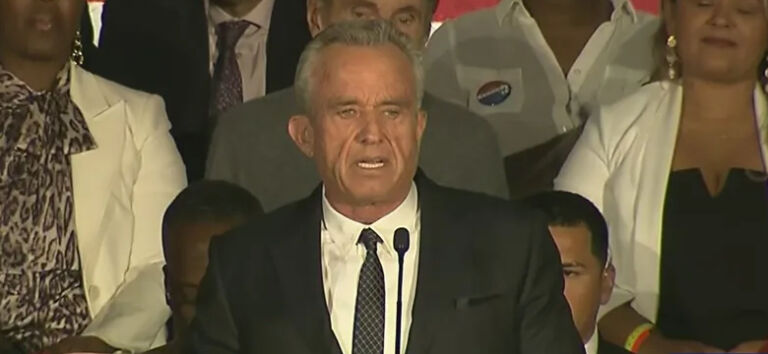(Photo of Cornel West by Gage Skidmore.)
UPDATE (June 27): The Democratic-controlled North Carolina State Board of Elections voted to deny three parties ballot access. Republican board member Kevin Lewis was not amused:
I’m afraid that you’re probably a victim of a political hit job, and I’m sorry that if we wasted your time today, but I appreciate you coming and answering our questions honestly. These allegations are coming from outside the board of elections, and so the political hit job I’m talking about is arising from outside the state board of elections.
The board will reconsider the parties’ petitions soon. If they refuse to grant the parties ballot access again at that meeting, we can expect more lawsuits like the one the Green Party used to get on the ballot in 2022.
ORIGINAL POST: Three political parties have submitted petitions with more than enough verified signatures to be recognized by the North Carolina State Board of Elections (SBE). If the board recognizes them, they will be able to place candidates on the ballot this November.
However, two of those parties are dealing with attempts by the Democratic Party to keep them off the ballot, reminiscent of earlier efforts by Democrats to suppress moderate and progressive third parties in North Carolina. Those earlier third-party efforts also faced opposition from the SBE’s Democratic majority.
Democrats Try to Stop Third-Party Candidates in North Carolina
On the SBE statewide petitions page, you can find a host of petitions for parties seeking to be officially recognized and candidates seeking to get on the ballot. That list includes three parties that have submitted more than the 13,865 valid signatures required to be recognized as an official party. Official recognition gives a party the opportunity to place candidates on the general election ballot in November.

The three parties that have made the cut are We the People (the vehicle to nominate Robert F. Kennedy Jr. for president), the Justice for All Party (the vehicle for progressives supporting activist Dr. Cornel West), and the conservative Constitution Party of North Carolina.
The final step is for the SBE’s board to officially recognize the parties in a vote in their upcoming meeting.
While that may seem like a fait accompli, there are a couple of interconnected barriers for the two parties with the most valid signatures: the Democratic Party’s hostility to their efforts and the SBE’s recent history of trying to put the kibosh on third parties.
Nationally, Democrats have raised “an army of lawyers” to try to thwart the rise of third parties they believe might cost President Biden votes in November:
The legal offensive, led by Dana Remus, who until 2022 served as President Biden’s White House counsel, and Robert Lenhard, an outside lawyer for the party, will be aided by a communications team dedicated to countering candidates who Democrats fear could play spoiler to Mr. Biden. It amounts to a kind of legal Whac-a-Mole, a state-by-state counterinsurgency plan ahead of an election that could hinge on just a few thousand votes in swing states.
Lenhard telegraphed what might be their strategy in North Carolina by saying that they would monitor third-party efforts to ensure that “you are actually a political party — a large group of people who believe what you believe, not simply a single candidate wanting to circumvent existing rules.” We may hear this argument again when the SBE board meets to consider the parties’ petitions.
(There is a long tradition of candidate-centered parties in America, however. Examples include the Bull Moose and Reform parties, the latter of which is still active in some states.)
Democrats in North Carolina are already working to get signers to remove their names from the Justice for All and We the People petitions or, failing that, get verified signatures thrown out. If all else fails, they could try to get the state board, which has a 3-2 Democratic majority, to reject the petitions based on Lenhard’s argument that they are not really political parties.
(On the other hand, West’s effort has gotten some help from Republicans, including attendees at a North Carolina Trump rally signing Justice for All Party petitions.)
The Democrats and SBE’s Past Anti-Third Party Efforts
If you think you have seen this before, it is because you have.
The Green Party submitted over 22,000 signatures in a 2022 petition to be recognized as an official political party in North Carolina. About 16,000 of those were verified by county boards of elections, well over the 13,865 verified signatures needed for recognition.
A lawyer with the Elias Law Group then brought a complaint to the SBE on behalf of the Democratic Party’s deputy get-out-the-vote director, Michael Abucewicz. The complaint alleged that the petition contained “fraudulent signatures” and that the Greens misled “signatories as to the purpose of the petition.”
The SBE obliged the Democrats’ effort. SBE Executive Director Karen Brinson Bell told the board that she felt “like there is a cloud over how many signatures are valid.” The board responded by voting to delay certifying the Green Party’s petition until after the deadline for them to nominate candidates for the 2022 election.
But their efforts to keep the Greens off the ballot were in vain. The Green Party successfully sued the SBE to get on the 2022 ballot, also defeating a state Democratic Party lawsuit to stop them. A federal judge later ordered the Democratic Party to pay part of the Green Party’s legal bills after the Democrat’s “frivolous” and “unreasonable” part in the attempt to keep the Greens off the 2022 ballot.
A similar effort was made in 2023 to keep No Labels off the ballot across the United States. Again, part of that effort played out in the SBE. Having failed to stop the Green Party based on an attempt to invalidate signatures, the head of the SBE’s board tried a different strategy:
With both objective criteria for state recognition met, SBE Chairman Alan Hirsch shifted focus to a subjective measure. He refused to bring the petition up for a vote at the board’s July 27 meeting (starting at the 46:20 point). His stated reason was that No Labels needed to do more to prove that it satisfied another provision of the statute: “the organizers and petition circulators shall inform the signers of the general purpose and intent of the new party.”
Again, that effort only succeeded in delaying the new party’s official status. A couple of weeks later, the board voted to recognize No Labels despite earlier throwing “curveballs” at the party’s effort.
(No Label’s win has been mooted, however, because of a “secret battle” that succeeded in “dissuading any potential candidates from joining its ticket.” As of today, there will not be a No Labels candidate on the ballot this fall.)
What to Expect at the SBE’s Party Recognition Meeting
Given the number of valid signatures each party has submitted, we should expect the Constitution Party to have the most difficult time getting officially recognized by the SBE when it meets later this month.
However, given the board’s recent history of trying to stop third-party efforts that the Democratic Party opposed, we could be in for a surprise or two. One thing to look for is if board chair Alan Hirsch adapts the Democratic lawyer’s arguments about “a single candidate wanting to circumvent existing rules.” If he goes that route, the We the People and Justice for All parties could have the same rough go of it that the Green and No Labels parties had.

